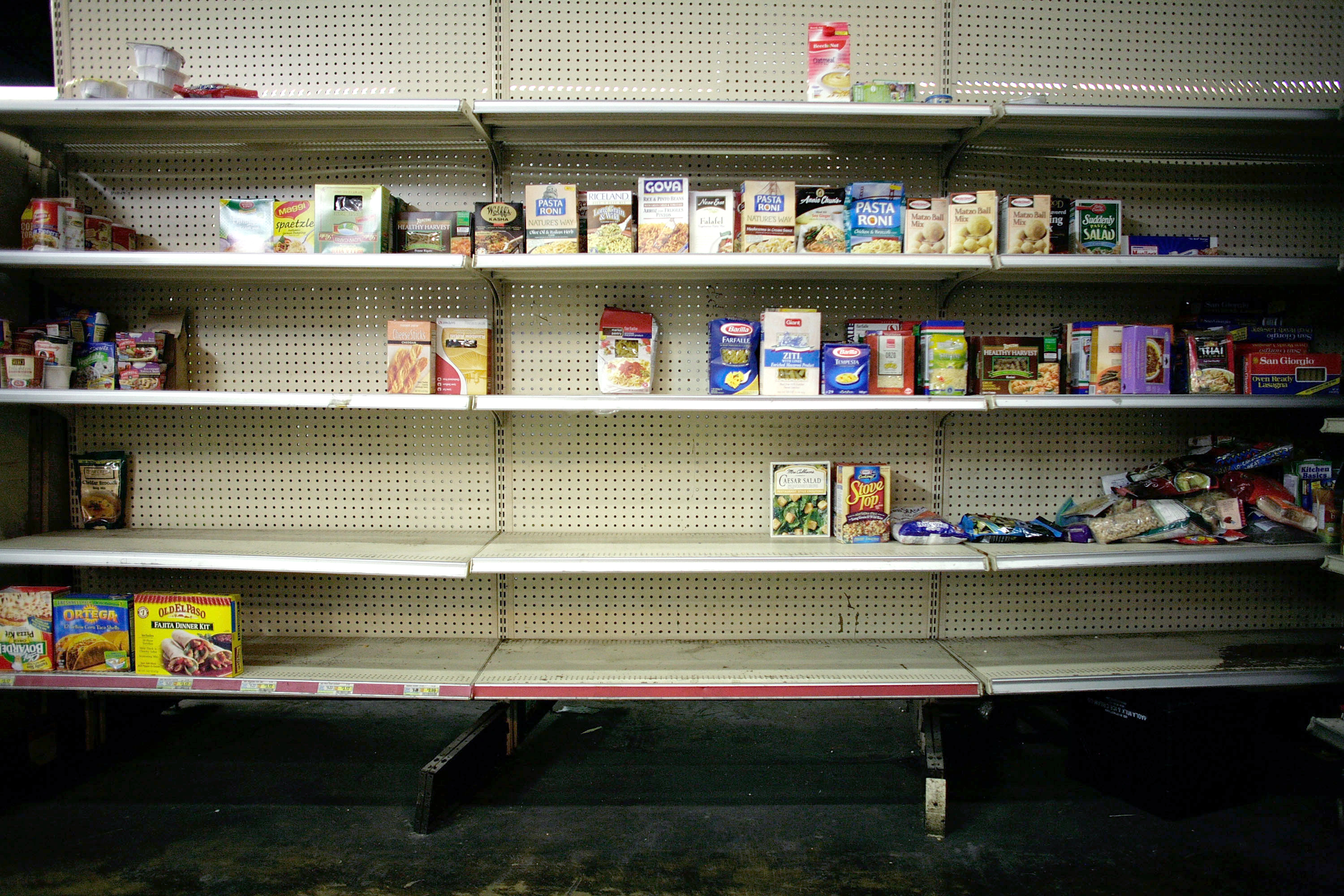The grotesque injustice of starving 1 million unemployed Americans
This is what it means to deprive job seekers of food stamps


A free daily email with the biggest news stories of the day – and the best features from TheWeek.com
You are now subscribed
Your newsletter sign-up was successful
You never finished high school because your parents weren't around. Or you needed to work. Or you struggled academically and no one knew how to help. You lost your job (or your many jobs) in the Great Recession, or in the terrible job market that followed, or because you got sick, or your car broke down. You live in a troubled city, a far-flung suburb, or in the heart of rural America, and you may be black or Hispanic, but odds are, you're white — and this week has been an especially bad week for you, because seven days ago, thanks to a law passed under President Clinton, you lost the only support that your fellow citizens had deigned to give you: $150 a month in food stamps.
At the very least, if this is you, you're not alone: Some 500,000 to one million Americans are on their way to being right there by your side.
This abrupt increase in the misery of hundreds of thousands of Americans is a result of a provision in the 1996 Welfare Reform Act that imposes stringent time limits on the able-bodied, childless unemployed, stripping them of food stamps (also known as SNAP) if they've already received three months of such benefits while unemployed over the course of three years. It was passed by a Republican Congress and signed into law by then-President Bill Clinton.
The Week
Escape your echo chamber. Get the facts behind the news, plus analysis from multiple perspectives.

Sign up for The Week's Free Newsletters
From our morning news briefing to a weekly Good News Newsletter, get the best of The Week delivered directly to your inbox.
From our morning news briefing to a weekly Good News Newsletter, get the best of The Week delivered directly to your inbox.
The law does allow for this requirement to be waived in times of particular economic hardship, and almost every state in the union was able to do so after the 2008 economic tsunami. But as of Jan. 1, the U.S. economy was just enough recovered that the employment mandate snapped back into place and the countdown to three months began across 22 states (it had already taken effect in 18 others).
The long-term unemployed do have one way to hold on to their daily bread, but the most obvious solution — looking for a job — isn't good enough (even if your job search is verified and verifiably unsuccessful). Their only recourse is to participate in job training — but, as the Center on Budget and Policy Priorities reports, "states aren't required to offer these recipients a place in a work or training program… and very few states do." Which is to say: If you're chronically poor and lack the skills, training, or reliable transportation to seek and secure employment, you'd better conjure up a training program on your own if you want to maintain your SNAP eligibility.
There's a stunning hypocrisy here, not least the fact that surely — surely — making a good faith effort at finding work should protect one's right to eat. Furthermore, as Emily Badger pointed out in The Washington Post last year, "we rarely make similar demands of other recipients of government aid... We don't require Pell Grant recipients to prove that they're pursuing a degree that will get them a real job one day (sorry, no poetry!)."
But of course, American culture consciously and openly holds the poor to a different standard. Middle-class mothers are shamed if they choose to work rather than stay at home; poor mothers are shamed if they choose to stay at home rather than work. We insist $15 is too high a wage for the skills of a fast food worker, but use property taxes to fund schools, giving middle-class kids the skills necessary to avoid a lifetime of fast food work.
A free daily email with the biggest news stories of the day – and the best features from TheWeek.com
We are in essence punishing the poor for their poverty, as if poverty were an ethical breach, not the result of interlocking social, political, and personal realities, many of which are entirely out of poor people's hands. How often do city planners consider the job disruption caused when they cancel (or never build) a bus route? When corporations decide there's no profit in reliable internet access for rural communities, how do the rural unemployed complete online job applications?
The answer of many politicians is to blithely direct the needy to their local food banks, but in the words of Michele Zurakowski, executive director of the Oak Park River Forest Food Pantry in suburban Chicago, "it makes no sense to send one million people to food pantries. Multiply [$150 a month] by one million people and, well, you can do the math. Food pantries cannot absorb that cost."
And finally, as Rebecca Vallas, managing director for the Center for American Progress' Poverty to Prosperity Program has said, "making people go hungry won't help them find a job."
If a nation's greatness is measured by how it treats its most vulnerable citizens, I would submit that our constant and eager willingness to take food out of the mouths of the poor suggests that our great nation has failed.
This week, untold Americans are being forced to learn how to shoulder that failure.
Emily L. Hauser is a long-time commentary writer. Her work has appeared in a variety of outlets, including The Daily Beast, Haaretz, The Forward, Chicago Tribune, and The Dallas Morning News, where she has looked at a wide range of topics, from helmet laws to forgetfulness to the Israeli-Palestinian conflict.
